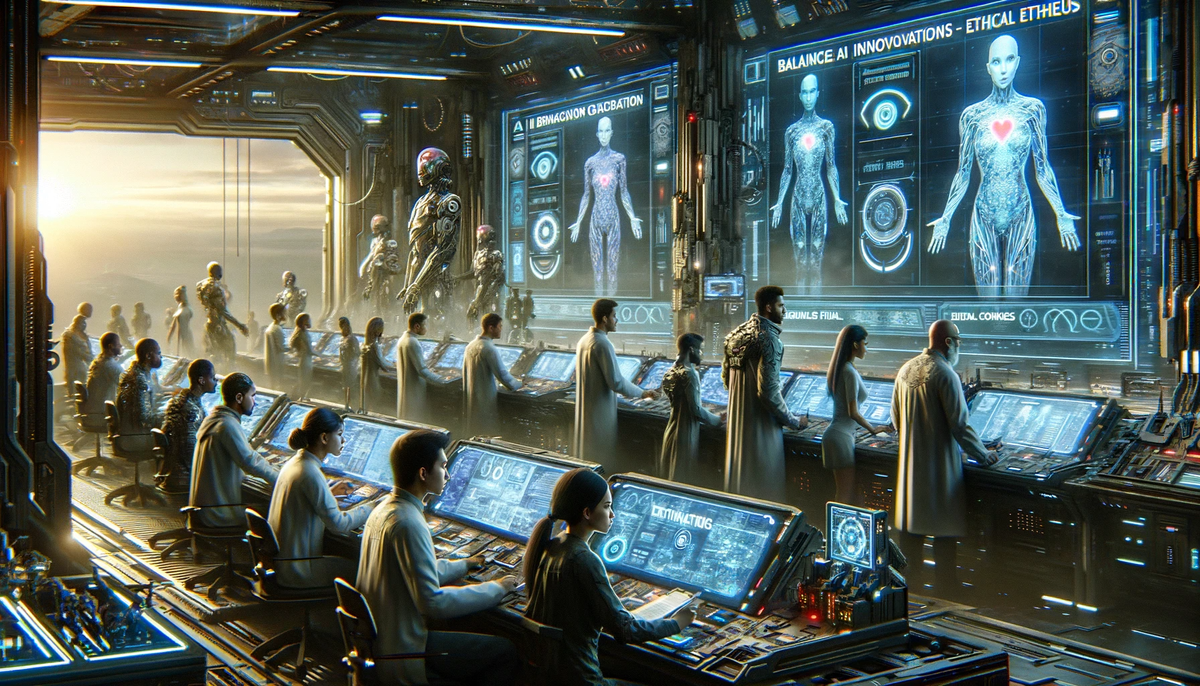OpenAI's Leadership Crisis: Implications for the Future of AI and Its Partnership with Microsoft
OpenAI faces a pivotal moment as 500 employees demand leadership changes, potentially reshaping its future and AI trust. The OpenAI-Microsoft partnership could be significantly impacted, highlighting the need for stable, ethical AI governance.

The recent upheaval at OpenAI, marked by 500 employees signing a letter demanding the resignation of the Board of Directors and reinstatement of Sam Altman as CEO, raises significant questions about the future of the organization and the broader AI industry. This internal crisis at OpenAI, a leading player in the field of artificial intelligence, has far-reaching implications not only for the company but also for its strategic partnerships and the general public's trust in AI.
OpenAI's Current Situation and the Impact on AI Industry
OpenAI, known for its groundbreaking advancements in AI, including the development of GPT (Generative Pre-trained Transformer) models, has been at the forefront of AI innovation. The demand by a substantial portion of its workforce for a leadership change signifies deep internal conflicts that could hinder the organization's progress. If the board does not respond favorably to these demands, the threat of mass resignations could lead to a significant loss of talent and expertise, critically impairing OpenAI's ongoing projects and future endeavors.
The potential collapse of a leader like OpenAI could erode public trust in AI. Confidence in AI technologies is intricately linked to the perceived stability and ethical standards of the companies that develop them. A major disruption at OpenAI might cause apprehension among users and stakeholders about the reliability and ethical governance of AI technologies, potentially slowing down the adoption of AI solutions across various sectors.
Implications for OpenAI-Microsoft Partnership
The partnership between OpenAI and Microsoft has been a cornerstone in advancing AI technologies. Microsoft's substantial investment in OpenAI, including exclusive licensing of GPT-3, demonstrates the strategic importance of this relationship. If the internal turmoil at OpenAI escalates, leading to the exit of key personnel like Sam Altman, it could significantly impact this partnership.
Should Altman and other leading figures move to Microsoft, it might lead to a realignment of the partnership, with Microsoft potentially gaining more direct control over the development and deployment of AI technologies. This shift could have both positive and negative outcomes. On the one hand, Microsoft's robust infrastructure and resources might accelerate AI development; on the other hand, it could lead to concerns about monopolization and decreased transparency in AI advancements.
The Future of AI and Ethical Considerations
The future of AI, in light of these developments, is at a crossroads. While the resignation of the OpenAI Board and the reinstatement of Sam Altman could stabilize the situation, it also highlights the need for strong ethical governance and transparent leadership in AI companies. The AI industry must address these challenges head-on to maintain public trust and ensure responsible development of AI technologies.
In conclusion, the turmoil at OpenAI serves as a critical juncture for the AI industry. It underscores the importance of stable, ethical leadership in driving AI innovations. The potential realignment of OpenAI's partnership with Microsoft and the possible shift of talents like Sam Altman to other tech giants could reshape the landscape of AI development. As AI continues to evolve, maintaining public trust and ensuring responsible and transparent governance will be paramount in realizing the full potential of these transformative technologies.



